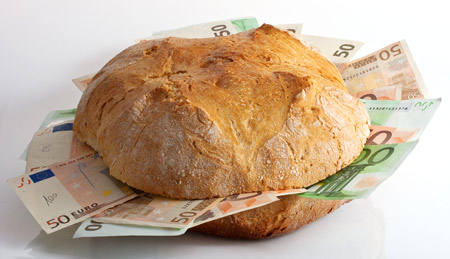I know various economic systems are not proscriptions, per say, but more descriptions of the type of systems that evolve naturally between human beings. When we start talking about "isms" it's more an explanation of how some central authority acts to manipulate these systems. A government itself can certainly be more capitalist or socialist based on it's policies, but these labels are really more descriptive of which natural threads on the existing economy are being hampered or helped through intervention.
Most proponents of these economic systems believe there is some sort of natural state by which, if left alone (whatever that means) human society would naturally gravitate towards. In (very broad, overly generalist) terms, extreme capitalism is attempting to free people to interact in ways they would naturally, while extreme socialism is attempting to remove allegedly artificial barriers of historic development to return people to some natural state.
I suspect most anyone will tell you perhaps there is a necessary tension between these two ideas - which are really just competing notions of communal and individual responsibility. Again, crudely: "being selfish helps everyone" vs "being selfless helps everyone," when in reality human beings are neither selfish nor selfless. We tend to be both.
Underlying all of these economic theories, however, is one universal theme. They're consumed with more. the assumption of economics is the production of more wealth. It's the old, "bigger house, better car, more luxury" mantra of human society. Capitalism might use this drive to elicit competition, while socialism might use this drive to elicit compassion, but they're ultimately in search of the same thing.
I've been thinking about this in light of what I guess we call Biblical economics (although that's a pretty terrible term). I'd prefer to use "Kingdom economics," but that's entirely insider lingo and tough to access without help.
In any event, I'd describe such economics as Generous Simplicity.
God calls people to less. Use less, need less, be happy with less. God calls people to less so we can be givers and recipients of generosity. A people who need and want less, have plenty to give, but also receive simple gifts as great treasure.
We often simplify things to say, "God doesn't want anyone to go without," but fasting and sacrifice have always been a real part of God's formation of people. Those practices exist to show us just how little we really need. Of course, no one should be hungry or thirsty - but how few of us really know what those words mean? Especially those of us immersed in the economics of more?
God doesn't want anyone forced into poverty, but God does want us to desire simplicity.
Jesus, through words and example, calls people to be downwardly mobile. Our eyes and aspirations should not be on those above us in the prosperity ladder, but on those below. We should not be working to need more, but to need less. There are a lot of ways to interpret the literally meaning of those words; I believe all of them are correct.*
In truth, simplicity works against a capitalist system; it works against a socialist system, too. Perhaps when we talk about economics, the real inherent tension is not between which particular ism makes the most sense to us, but the tension between the drive for more and the drive for less.
This speaks powerfully to our understanding of "security." God speaks powerfully that our economic hope should not be in wise investments or proper planning, but in the provision of God - which is most real only when the cupboard is truly bare.
I can't tell you exactly what it means to live simply in the midst of our complex economic age. It seems straightforward that followers of the man with no place to lay his head, of the man who brought abundance from a severely lacking meal of loaves and fishes, of the man who relied entirely on the generosity of strangers - would embark on similar lives. It also seems straightforward that this lifestyle is irresponsible in our day and age (in fact we have a whole industry of non-profits built around helping people leave it).
So, I can't tell you exactly what it means to live simply in the midst of our complex economic age. And I'm not going to say that "less is more," because less is usually less and more is usually more - there's no deep paradox there.
I can say the real economics of life revolve around less, not more - and it's vitally important with wrestle with that notion as we seek to live well in the world.

No comments:
Post a Comment